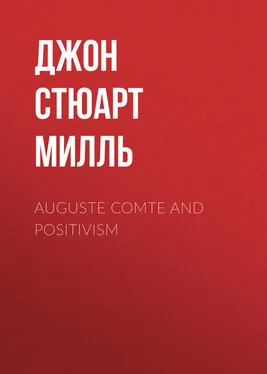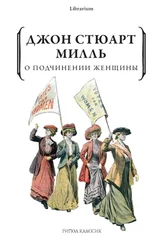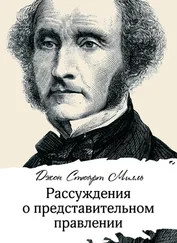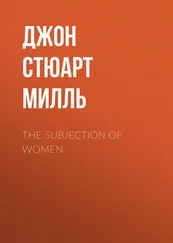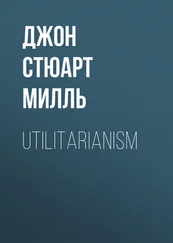Джон Милль - Auguste Comte and Positivism
Здесь есть возможность читать онлайн «Джон Милль - Auguste Comte and Positivism» — ознакомительный отрывок электронной книги совершенно бесплатно, а после прочтения отрывка купить полную версию. В некоторых случаях можно слушать аудио, скачать через торрент в формате fb2 и присутствует краткое содержание. Жанр: Философия, literature_19, foreign_antique, foreign_prose, на английском языке. Описание произведения, (предисловие) а так же отзывы посетителей доступны на портале библиотеки ЛибКат.
- Название:Auguste Comte and Positivism
- Автор:
- Жанр:
- Год:неизвестен
- ISBN:нет данных
- Рейтинг книги:4 / 5. Голосов: 1
-
Избранное:Добавить в избранное
- Отзывы:
-
Ваша оценка:
- 80
- 1
- 2
- 3
- 4
- 5
Auguste Comte and Positivism: краткое содержание, описание и аннотация
Предлагаем к чтению аннотацию, описание, краткое содержание или предисловие (зависит от того, что написал сам автор книги «Auguste Comte and Positivism»). Если вы не нашли необходимую информацию о книге — напишите в комментариях, мы постараемся отыскать её.
Auguste Comte and Positivism — читать онлайн ознакомительный отрывок
Ниже представлен текст книги, разбитый по страницам. Система сохранения места последней прочитанной страницы, позволяет с удобством читать онлайн бесплатно книгу «Auguste Comte and Positivism», без необходимости каждый раз заново искать на чём Вы остановились. Поставьте закладку, и сможете в любой момент перейти на страницу, на которой закончили чтение.
Интервал:
Закладка:
John Stuart Mill
Auguste Comte and Positivism
PART I.
THE COURS DE PHILOSOPHIE POSITIVE
For some time much has been said, in England and on the Continent, concerning "Positivism" and "the Positive Philosophy." Those phrases, which during the life of the eminent thinker who introduced them had made their way into no writings or discussions but those of his very few direct disciples, have emerged from the depths and manifested themselves on the surface of the philosophy of the age. It is not very widely known what they represent, but it is understood that they represent something. They are symbols of a recognised mode of thought, and one of sufficient importance to induce almost all who now discuss the great problems of philosophy, or survey from any elevated point of view the opinions of the age, to take what is termed the Positivist view of things into serious consideration, and define their own position, more or less friendly or hostile, in regard to it. Indeed, though the mode of thought expressed by the terms Positive and Positivism is widely spread, the words themselves are, as usual, better known through the enemies of that mode of thinking than through its friends; and more than one thinker who never called himself or his opinions by those appellations, and carefully guarded himself against being confounded with those who did, finds himself, sometimes to his displeasure, though generally by a tolerably correct instinct, classed with Positivists, and assailed as a Positivist. This change in the bearings of philosophic opinion commenced in England earlier than in France, where a philosophy of a contrary kind had been more widely cultivated, and had taken a firmer hold on the speculative minds of a generation formed by Royer-Collard, Cousin, Jouffroy, and their compeers. The great treatise of M. Comte was scarcely mentioned in French literature or criticism, when it was already working powerfully on the minds of many British students and thinkers. But, agreeably to the usual course of things in France, the new tendency, when it set in, set in more strongly. Those who call themselves Positivists are indeed not numerous; but all French writers who adhere to the common philosophy, now feel it necessary to begin by fortifying their position against "the Positivist school." And the mode of thinking thus designated is already manifesting its importance by one of the most unequivocal signs, the appearance of thinkers who attempt a compromise or juste milieu between it and its opposite. The acute critic and metaphysician M. Taine, and the distinguished chemist M. Berthelot, are the authors of the two most conspicuous of these attempts.
The time, therefore, seems to have come, when every philosophic thinker not only ought to form, but may usefully express, a judgment respecting this intellectual movement; endeavouring to understand what it is, whether it is essentially a wholesome movement, and if so, what is to be accepted and what rejected of the direction given to it by its most important movers. There cannot be a more appropriate mode of discussing these points than in the form of a critical examination of the philosophy of Auguste Comte; for which the appearance of a new edition of his fundamental treatise, with a preface by the most eminent, in every point of view, of his professed disciples, M. Littré, affords a good opportunity. The name of M. Comte is more identified than any other with this mode of thought. He is the first who has attempted its complete systematization, and the scientific extension of it to all objects of human knowledge. And in doing this he has displayed a quantity and quality of mental power, and achieved an amount of success, which have not only won but retained the high admiration of thinkers as radically and strenuously opposed as it is possible to be, to nearly the whole of his later tendencies, and to many of his earlier opinions. It would have been a mistake had such thinkers busied themselves in the first instance with drawing attention to what they regarded as errors in his great work. Until it had taken the place in the world of thought which belonged to it, the important matter was not to criticise it, but to help in making it known. To have put those who neither knew nor were capable of appreciating the greatness of the book, in possession of its vulnerable points, would have indefinitely retarded its progress to a just estimation, and was not needful for guarding against any serious inconvenience. While a writer has few readers, and no influence except on independent thinkers, the only thing worth considering in him is what he can teach us: if there be anything in which he is less wise than we are already, it may be left unnoticed until the time comes when his errors can do harm. But the high place which M. Comte has now assumed among European thinkers, and the increasing influence of his principal work, while they make it a more hopeful task than before to impress and enforce the strong points of his philosophy, have rendered it, for the first time, not inopportune to discuss his mistakes. Whatever errors he may have fallen into are now in a position to be injurious, while the free exposure of them can no longer be so.
We propose, then, to pass in review the main principles of M. Comte's philosophy; commencing with the great treatise by which, in this country, he is chiefly known, and postponing consideration of the writings of the last ten years of his life, except for the occasional illustration of detached points.
When we extend our examination to these later productions, we shall have, in the main, to reverse our judgment. Instead of recognizing, as in the Cours de Philosophic Positive, an essentially sound view of philosophy, with a few capital errors, it is in their general character that we deem the subsequent speculations false and misleading, while in the midst of this wrong general tendency, we find a crowd of valuable thoughts, and suggestions of thought, in detail. For the present we put out of the question this signal anomaly in M. Comte's intellectual career. We shall consider only the principal gift which he has left to the world, his clear, full, and comprehensive exposition, and in part creation, of what he terms the Positive Philosophy: endeavouring to sever what in our estimation is true, from the much less which is erroneous, in that philosophy as he conceived it, and distinguishing, as we proceed, the part which is specially his, from that which belongs to the philosophy of the age, and is the common inheritance of thinkers. This last discrimination has been partially made in a late pamphlet, by Mr Herbert Spencer, in vindication of his own independence of thought: but this does not diminish the utility of doing it, with a less limited purpose, here; especially as Mr Spencer rejects nearly all which properly belongs to M. Comte, and in his abridged mode of statement does scanty justice to what he rejects. The separation is not difficult, even on the direct evidence given by M. Comte himself, who, far from claiming any originality not really belonging to him, was eager to connect his own most original thoughts with every germ of anything similar which he observed in previous thinkers.
The fundamental doctrine of a true philosophy, according to M. Comte, and the character by which he defines Positive Philosophy, is the following: – We have no knowledge of anything but Phaenomena; and our knowledge of phaenomena is relative, not absolute. We know not the essence, nor the real mode of production, of any fact, but only its relations to other facts in the way of succession or of similitude. These relations are constant; that is, always the same in the same circumstances. The constant resemblances which link phaenomena together, and the constant sequences which unite them as antecedent and consequent, are termed their laws. The laws of phaenomena are all we know respecting them. Their essential nature, and their ultimate causes, either efficient or final, are unknown and inscrutable to us.
Читать дальшеИнтервал:
Закладка:
Похожие книги на «Auguste Comte and Positivism»
Представляем Вашему вниманию похожие книги на «Auguste Comte and Positivism» списком для выбора. Мы отобрали схожую по названию и смыслу литературу в надежде предоставить читателям больше вариантов отыскать новые, интересные, ещё непрочитанные произведения.
Обсуждение, отзывы о книге «Auguste Comte and Positivism» и просто собственные мнения читателей. Оставьте ваши комментарии, напишите, что Вы думаете о произведении, его смысле или главных героях. Укажите что конкретно понравилось, а что нет, и почему Вы так считаете.
